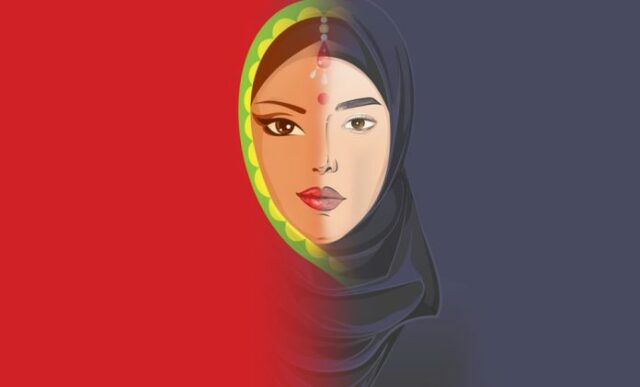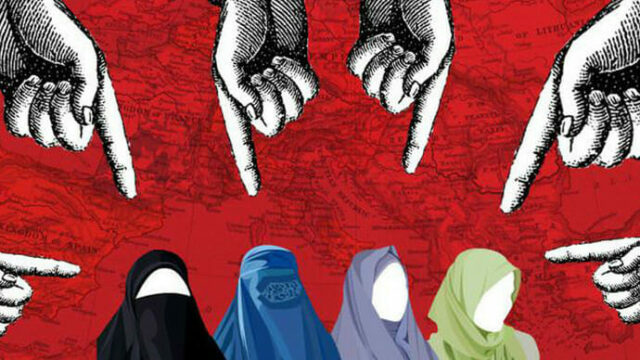A college in Chikkamagaluru district in Karnataka banned the wearing of saffron scarves and hijabs in college after a communal conflict between students.
The Incident

On 4th January, around 50 students of the government-run college wore saffron scarves. They argued if Muslim female students could wear hijab, then saffron scarves should not be exempted. They protested that female students should not wear hijab in college.
Initially, the college authorities told the students to not wear hijab. But later, the decision was taken down. In the meeting between parents and teachers, it was decided both hijabs and saffron scarves shall not be worn in college. Muslim students can rather wear shawls instead of hijab to cover their heads.
Principals Statement
Ananth Murthy, the principal of the college gave a statement to Indian Express, “The officials were part of the meeting and it was decided that Hindu students will not sport saffron scarves and Muslim girl students will not wear hijabs but they can wear a shawl to cover their heads.“
He added, “If anyone violates the rule, they would be dismissed from the college.” The principal said that in his career he hardly faced any campus issue regarding dress code. He faced the same situation in 2018. Local representatives and officials helped to solve the situation.
Syed Sarfaraz Gangavathi, the state secretary of Campus Front of India, Karnataka, stated, “The Constitution allows the wearing of hijab or saffron shawls, but it should not be instigated by anyone or politically motivated.“
Also Read: Was India More Religiously Tolerant 70 Odd Years Ago Than It Is Today?
Uniformity Or Suppression Of Religious Identity?
The same incident happened at the government PU college in Udupi district in December. Six Muslim girls were not allowed to enter the campus wearing hijabs. The college decided on a uniform dress code. They rather gave the decision of wearing veils instead.
A heated debate took place over the parents/teachers meeting. A parent stated that religious practices cannot be abandoned. They have been marked absent since December 31, 2021. Parents are trying to ask the college authorities regarding the matter but they are adamant about their decision.
When religion acts as a tool for legitimizing authority, it creates conflict amongst different communities. Many follow the prescribed religious ways of conduct and norms due to the limitation of liberty.
If people express their religious identity according to their own will, they shall not be obstructed. There is a difference between weaponizing religion and expressing individuality without harming others’ sentiment.
The fifty students’ protests come more as hatred than seeking an egalitarian perspective. The decision to ban hijabs and saffron scarves plays as a temporary solution, but can it diffuse the internalized communal conflict?
Disclaimer: This article is fact-checked
Image Credits: Google Photos
Source: The Indian Express, The Times Of India & The Wire
Find The Blogger: @debanjalidas15
This post is tagged under: communal conflict, hijab, saffron scarves, Karnataka, Government college, religious identity, communal divide, campus, college divide, religious divide, religious difference, uniform, dress code
Other Recommendations:
How Indian Horror Movies Exploit Religious Sentiments To Instil Fear In the Viewer’s Psyche






























